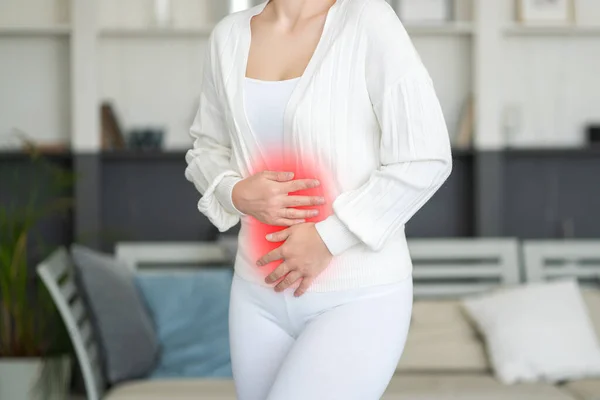Experiencing abdominal bloating can be uncomfortable and distressing, especially for those with endometriosis. Known as “endo belly,” this phenomenon is a common symptom that can significantly affect quality of life. Understanding what endo belly is, its connection to weight gain, and effective treatment options can empower individuals to manage their symptoms better.

What Is an Endo Belly?
Endo belly refers to the painful and often debilitating bloating associated with endometriosis, a condition where tissue similar to the lining of the uterus grows outside the uterus. This abnormal growth can lead to inflammation, irritation, and the formation of scar tissue, causing the abdomen to swell and feel tight or hard to the touch. Many individuals report that their abdomen resembles that of a pregnant person, despite not being pregnant. Symptoms typically worsen before or during menstruation and can last for hours or even weeks.
The bloating associated with endo belly is not just a cosmetic issue; it often comes with other gastrointestinal symptoms such as gas, constipation, diarrhea, and nausea. These symptoms arise due to the inflammatory response triggered by the misplaced endometrial-like tissue, which can also affect bowel function and lead to discomfort in daily activities.

Can Endometriosis Cause Weight Gain?
Yes, endometriosis can contribute to weight gain in several ways. The inflammation caused by endometrial-like tissue can lead to water retention, making individuals feel heavier and contributing to fluctuations in weight. Additionally, hormonal imbalances associated with endometriosis may influence metabolism and appetite regulation3.
Certain treatments for endometriosis, such as hormonal therapies and medications like birth control pills or progestins, may also cause weight gain as a side effect. This is particularly relevant for those who are already struggling with managing their weight due to the chronic pain and lifestyle limitations imposed by the condition35.
It is essential for individuals experiencing unexplained weight changes alongside their endometriosis symptoms to consult healthcare providers for tailored advice and management strategies.
How to Treat an Endo Belly
Managing an endo belly involves a combination of medical treatments, dietary adjustments, and lifestyle changes. Here are some effective strategies:
Medical Treatments
- Hormonal Therapy: Birth control pills and other hormonal medications can help regulate menstrual cycles and reduce the growth of endometrial-like tissue. This may alleviate bloating and other related symptoms.
- Surgical Options: In severe cases where medication does not provide relief, surgical interventions such as laparoscopy or hysterectomy may be necessary. These procedures aim to remove endometrial lesions or even the uterus itself if pregnancy is not desired.
- Pain Management: Over-the-counter pain relievers can help manage discomfort associated with bloating. However, it’s crucial to consult a healthcare provider before starting any medication regimen.
Dietary Adjustments
- Anti-Inflammatory Diet: Incorporating foods rich in antioxidants—such as fruits, vegetables, lean proteins, and healthy fats—can help reduce inflammation. Conversely, it’s advisable to limit processed foods, red meat, dairy products, caffeine, and alcohol.
- Low FODMAP Diet: Following a low FODMAP diet may alleviate gastrointestinal distress by reducing fermentable carbohydrates that contribute to gas and bloating. Consulting with a registered dietitian can provide personalized guidance.
- Hydration: Staying well-hydrated can help reduce bloating by promoting healthy digestion and preventing constipation.
Lifestyle Changes
- Regular Exercise: Engaging in regular physical activity can improve gut health and reduce bloating. Activities like yoga may also help relieve tension in the abdomen.
- Stress Management: Stress can exacerbate gastrointestinal symptoms; therefore, practices such as mindfulness meditation or deep-breathing exercises may be beneficial.
- Herbal Remedies: Drinking herbal teas like ginger or peppermint tea may provide relief from nausea and digestive discomfort associated with endo belly.
In conclusion, understanding endo belly is crucial for those affected by endometriosis. By recognizing its symptoms and exploring various treatment options—ranging from medical interventions to dietary changes—individuals can take proactive steps toward managing their condition effectively. Always consult healthcare professionals for personalized advice tailored to specific needs and circumstances.
Also Read | Stop That Cough: 5 Natural Remedies You Need to Try









